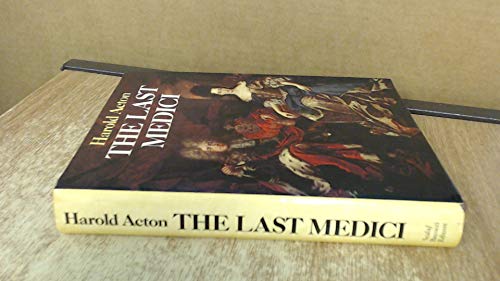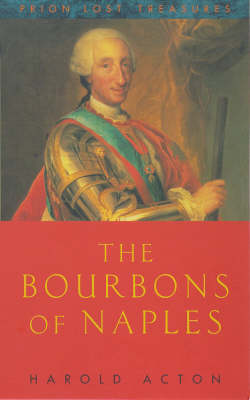Library Reprint S.
2 total works
In his remarkable account of the last Medici, famous aesthete and historian Harold Acton (1904-1994) takes up the causes which led to the disappearance of a house which has left indelible traces on the art, literature and commerce of the world; and his book was one of the first attempts to deal with this despotic dynasty in a scholarly and impartial spirit.
Much has been written about the phenomenal career of the early Medici: and there are many biographies of Lorenzo the Magnificent, Cosimo I, and the Medicean Popes. But less has been written of the final phase, and Acton demonstrates the hand of death overshadowing the great family in a series of unfortunate marriages - how one by one they vanished into the void.
The Last Medici centres mainly round the fantastic figures of Princess Marguerite-Louise d'Orleans and her husband Cosimo III, most fatal of all the Medicean sovereigns. The last act closes on Gian Gastone, their cynical younger son, bedridden in the Pitti Palace, a florid figure of despair, with the Powers of Europe ever on the alert for the sound of his death-rattle.
Full of brilliant colour, rich comedy and lurid tragedy, The Last Medici is at the same time a scientific contribution to the records of an extraordinary and unforgettable period.
Much has been written about the phenomenal career of the early Medici: and there are many biographies of Lorenzo the Magnificent, Cosimo I, and the Medicean Popes. But less has been written of the final phase, and Acton demonstrates the hand of death overshadowing the great family in a series of unfortunate marriages - how one by one they vanished into the void.
The Last Medici centres mainly round the fantastic figures of Princess Marguerite-Louise d'Orleans and her husband Cosimo III, most fatal of all the Medicean sovereigns. The last act closes on Gian Gastone, their cynical younger son, bedridden in the Pitti Palace, a florid figure of despair, with the Powers of Europe ever on the alert for the sound of his death-rattle.
Full of brilliant colour, rich comedy and lurid tragedy, The Last Medici is at the same time a scientific contribution to the records of an extraordinary and unforgettable period.
Before the unification of Italy in 1870, Naples was the capital of the largest of the separate Italian kingdoms. This book discusses the ruling European dynasty, the Bourbons of Naples, founded by Charles, son of King Philip V of Spain and grandson of Louis XIV of France, the Sun King.

